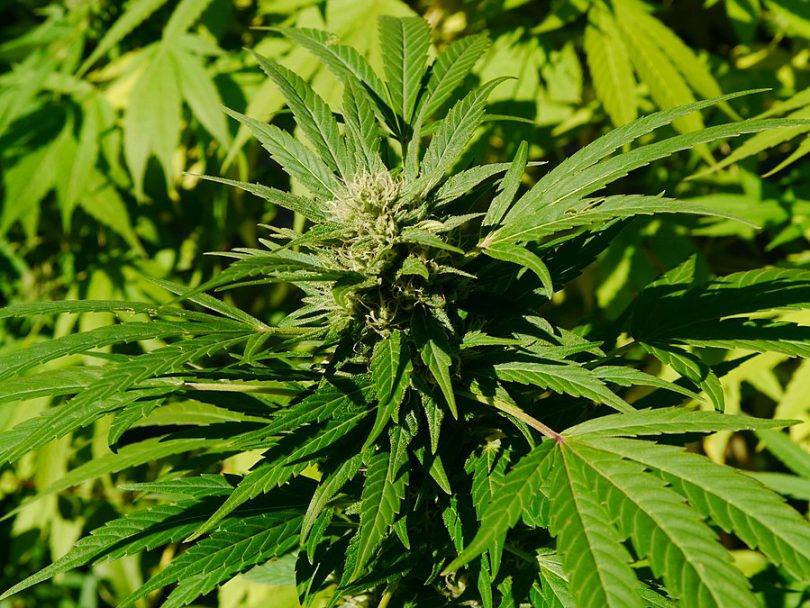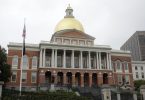By Toni Caushi
BU News Service
BOSTON — It was smiles all around at Millis Town Hall when officials received an $88,046 check from CommCan Inc., the only recreational marijuana dispensary in town.
The amount reflected three months of business after the location opened late last year, with the optional local 3% sales tax owed by every marijuana company in Massachusetts as part of the host community agreement.
Massachusetts cannabis sales met expectations in 2019, with $420 million in gross income, according to the Cannabis Control Commission.
The income has cycled back into communities where the stores have opened. It has helped the businesses thrive and has offered Massachusetts residents safe sale and consumption.
Not all communities are seeing the benefits of the gross earnings for 2019, however. Towns like Southborough have had a recreational sales ban since 2016, when Question 4 was approved.
Although statewide recreational sales were approved on a majority vote among towns and cities, not all voted yes.
Each of Southborough’s three precincts voted no. As a result, it is one of the more than 80 communities that not only reject recreational marijuana businesses, but also miss out the potential profits from sales taxes like those seen in Millis.
Despite the ban, Southborough is still home to one dispensary. It is CommCan’s second location, which operates only for medical sales under a separate law approved by voters in 2012.
Matthew Herrold, the company’s marketing associate, said the sales tax from marijuana sales benefits the towns where the company operates. Although the Southborough store doesn’t generate tax revenues, it still contributes to the town through a variety of donation drives.
“This business does something to serve people’s health and needs,” Herrold said. “We have opened 90 local jobs between our two locations. We organize toy drives, food drives and donate to a huge audience to create awareness about safe marijuana use.”
Herrold also pointed out how one of the donation drives the company organizes aims to help those formerly imprisoned with drug charges. On Feb. 11, the company donated $1,500 to Dismas House in Worcester, which employs former prisoners.
“Companies [that] want to can make real changes,” said Herrold.
Herrold does not see the ban as a lost battle for communities where medical facilities are the only viable option for cannabis products. He said that the almost 60,000 active patients in Massachusetts who have been issued a medical marijuana ID still see benefits, citing financial savings.
“[Customers] come out saving a lot of money,” he said. “We offer a 17% discount for first-time patients. After that, there are discounts up to $200.”
Medical sale locations are enough of a cannabis presence in Southborough for people like Cheryl Bisceglia, a resident who was one of the thousands who voted against recreational sales in 2016. She cited the unknown damage of the effects of marijuana.
“We don’t know much about it,” Bisceglia said. “Until not long ago people thought vaping was harmless, but look at what’s happening now.”
When asked about the financial benefits from recreational sales in towns like Millis, Bisceglia put it simply.
“I don’t think it matters when you see people dropping like flies from vaping,” she said.
Jim Borghesani, chief operating officer of Tudestr, a cannabis consulting organization, said he feels strongly that bans on recreational sales reflect baseless fears and stigmas.
″[Marijuana] bans are largely a result of hysteria from 100 years of prohibition,” he said. “Banning recreational sales [gives] a green light to illegal sales.”
Borghesani echoed Herrold regarding the benefits of recreational marijuana businesses. He mentioned the sales tax, the charitable contributions and job openings as reflections of how “prohibition has failed,” and why “every year [recreational marijuana] gets more support.”
When asked about decriminalization on a federal level, Borghesani exclaimed, “Oh God, yes! Marijuana is categorized as a Schedule I drug, with heroin, which is utterly ridiculous.”
Unlike Bisceglia, many in Massachusetts seem to agree with Borghesani.
Todd Earle of Leominster, who works in Southborough, said the town could change its position on recreational cannabis sales.
“Working with people living in Southborough I’ve understood that they’re more old-school, and I don’t think they understand,” he said. “They’re more conservative that way.”
“I think there’s a lot of money lost,” said Worcester resident Stacey McKenna. “People are going to smoke weed no matter what. Why not have it regulated?”
McKenna has seen Good Chemistry flourish in Worcester as a recreational location. She said she sees little downside in having recreational sales in place.
“From what I hear, people say it’s more expensive than buying it on the street,” she said. “But considering the medical benefits, I think the negatives of regulating it do not compare.”
Ashley Maddock of Southborough remained skeptical.
“While I do think a lot of cities and towns could benefit from recreational sales, I do think that it’s not something that [Southborough residents] are going to want,” she said.
Reversing a ban is not unusual in Massachusetts. After voting no on Question 4, Mashpee residents eventually voted to reject the ban.
On Feb. 8, Triple M, a currently medical-only facility, received a provisional license for recreational sales by the CCC.
“We have grown,” Herrold said. “Just like the rest of the industry, we will continue to grow.”
This article was originally published on The Telegram.




